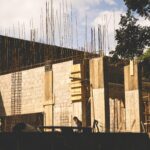
Rajya Sabha 2025: Regional Parties Flex Their Muscles in the Upper House Power Play
The 2025 Rajya Sabha elections are shaping up to be a critical contest, with regional parties playing an increasingly decisive role in shaping the composition and dynamics of India’s Upper House. As political power continues to fragment across states, these elections highlight the growing influence of state-based parties in national policymaking.
A Shift in Power Dynamics
The Rajya Sabha, with its 245 members, represents the federal character of India’s democracy, with seats allocated based on state populations. Regional parties, buoyed by strong performances in state elections, are poised to consolidate their presence in the Upper House. According to data from the Election Commission of India, nearly one-third of the Rajya Sabha seats up for election this year are from states where regional parties dominate, giving them a strategic advantage.
Key Regional Players
- Trinamool Congress (TMC): With its stronghold in West Bengal, the TMC is expected to leverage its state dominance to maintain a significant presence in the Rajya Sabha.
- Bharat Rashtra Samithi (BRS): Representing Telangana, the BRS aims to expand its influence at the national level, using the Rajya Sabha as a platform to highlight state-centric issues.
- Dravida Munnetra Kazhagam (DMK): The ruling party in Tamil Nadu has consistently used its Upper House strength to advocate for regional priorities, including federalism and social justice.
- Janata Dal (United) and RJD: Dominating Bihar’s political landscape, these parties are likely to secure key Rajya Sabha seats, reinforcing their alliance’s influence.
National Parties Eyeing Alliances
While regional parties are flexing their muscles, national parties like the BJP and Congress are strategizing to maintain their influence. The BJP, already the largest party in the Rajya Sabha, is focusing on consolidating smaller alliances to sustain its legislative agenda. Congress, on the other hand, is working to form broader coalitions with regional parties to regain lost ground.
Legislative Implications
The Rajya Sabha plays a critical role in passing key legislation. With regional parties gaining strength, their ability to influence debates and demand concessions from the central government is likely to grow. This could lead to more negotiation and consensus-building on contentious bills, reflecting the diverse priorities of India’s states.
Challenges Ahead
While regional parties strengthen their presence, challenges such as coalition stability and differing state interests could complicate their collective bargaining power. How these parties navigate their relationships with national players will determine their effectiveness in the Upper House.
Conclusion
The 2025 Rajya Sabha elections underscore the rising significance of regional parties in shaping India’s legislative landscape. As they flex their muscles in the Upper House, the balance of power in Indian politics continues to shift, heralding a more federal and pluralistic approach to governance.




